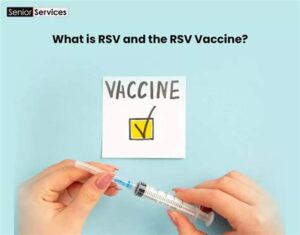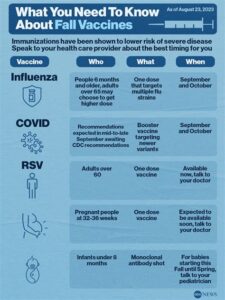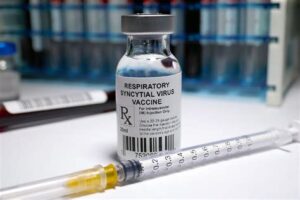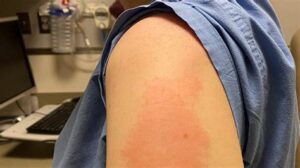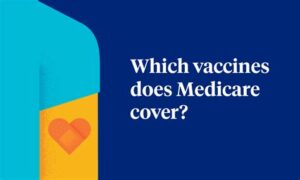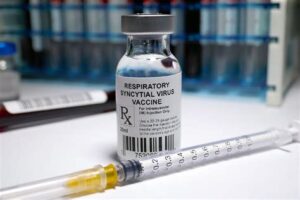Learn about the RSV and shingles vaccines, their benefits, and the importance of consulting a healthcare professional for safe combined vaccination.As we age and our immune systems change, staying protected against various infections becomes increasingly important. Two vaccines that have gained attention in recent years are the RSV (respiratory syncytial virus) vaccine, aimed at preventing severe respiratory illness, and the shingles vaccine, designed to protect against the painful condition caused by the reactivation of the chickenpox virus. With both vaccines now available, many are left wondering if they can be administered together. In this blog post, we will explore the details of each vaccine, the benefits of receiving both at the same time, and the importance of consulting with a healthcare professional to ensure optimal protection against these viruses. Understanding your vaccination options can empower you to make informed decisions about your health and well-being.
What is RSV vaccine?
The RSV vaccine, also known as the Respiratory Syncytial Virus vaccine, is designed to protect individuals from RSV, a common virus that causes respiratory infections, particularly in infants and the elderly. The main purpose of the vaccine is to prevent severe illness and hospitalizations associated with RSV infections.
RSV is a significant public health concern, especially for vulnerable populations. The vaccine works by stimulating the body’s immune system to recognize and fight against the RSV virus. Currently, there are several candidate vaccines in various stages of development, with clinical trials ongoing to ensure their safety and efficacy.
The introduction of an RSV vaccine could greatly reduce the burden of respiratory diseases, especially in children and older adults, who are at a higher risk of complications. Vaccination also plays a vital role in contributing to herd immunity, protecting those who are more susceptible to severe disease.
What is shingles vaccine?
The shingles vaccine is a vaccine designed to protect individuals from shingles, a viral infection caused by the varicella-zoster virus, which also causes chickenpox. Shingles can cause painful rashes, blisters, and long-lasting nerve pain, known as postherpetic neuralgia. The vaccine works by boosting the immune response to the virus, thereby reducing the risk of developing shingles and its complications.
There are two types of shingles vaccines currently available: Zostavax and Shingrix. Zostavax is a live attenuated vaccine, while Shingrix is a recombinant vaccine that is more effective and is generally recommended for adults aged 50 and older. Studies have shown that Shingrix is about 90% effective in preventing shingles, making it a preferred choice among healthcare providers.
Vaccination is especially important for older adults and individuals with weakened immune systems. By getting the shingles vaccine, these populations can significantly lower their chances of experiencing shingles, allowing them to enjoy a higher quality of life in their later years.
Can you get both vaccines together?
The question of whether you can receive the RSV (respiratory syncytial virus) vaccine and the shingles vaccine together is an important consideration for many individuals, especially those who may be at risk for both illnesses. Understanding the administration of these vaccines can help optimize your health and ensure you are adequately protected.
According to healthcare providers, it is generally considered safe to receive the RSV vaccine and the shingles vaccine on the same day. However, this decision should be tailored to the individual’s health status and specific medical advice. In some cases, getting both vaccines simultaneously could help reduce the number of visits to healthcare facilities, which is particularly beneficial during flu season or other times of high respiratory illness prevalence.
Before proceeding with combined vaccination, it is advisable to consult your healthcare professional. They can provide personalized recommendations based on your medical history, any underlying health conditions, and potential interactions. Always prioritize your health by discussing your concerns and questions with a qualified professional.
Benefits of getting both vaccines simultaneously
Getting vaccinated is one of the best ways to protect yourself and your community from serious infectious diseases. RSV (Respiratory Syncytial Virus) and shingles are two illnesses that can cause significant health concerns, especially in vulnerable populations. Receiving both vaccines at the same time offers a range of advantages that shouldn’t be overlooked.
One primary benefit of getting both vaccinations simultaneously is the convenience it offers. Patients can minimize the number of appointments and trips to healthcare facilities, saving both time and effort. This is especially beneficial for busy individuals or those with mobility issues. With just one visit, you can receive protection from two potentially debilitating conditions.
Moreover, simultaneous vaccination can lead to enhanced adherence to vaccination schedules. When patients are aware that they can receive multiple vaccines during one visit, they may be more likely to comply with recommended immunization guidelines. This approach not only protects individuals more effectively but also contributes to community immunity, reducing the spread of these diseases in the population.
Finally, studies have indicated that receiving both vaccines together does not compromise the immune response for either vaccine. This means you can achieve optimal protection from both RSV and shingles without worrying about diminished effectiveness. In fact, this combined approach may lead to a stronger overall immune response, making it an intelligent choice for many individuals.
Consulting a healthcare professional for combined vaccination
When considering the RSV and shingles vaccines, consulting a healthcare professional is crucial. Health experts can provide insights about the safety and efficacy of getting the two vaccines at the same time. With an increasing focus on preventive care, understanding how these vaccines interact is significant for your health.
A healthcare provider will assess your medical history and current health status to determine the best vaccination schedule for you. They can clarify any misconceptions about receiving multiple vaccines simultaneously and recommend the optimal time frame based on your individual needs.
Additionally, discussing preventive strategies with your doctor can empower you to make informed decisions regarding your vaccination plan. They can also inform you about potential side effects and recovery times associated with each vaccine, ensuring that you are fully prepared.
Frequently Asked Questions
What is RSV and why is it important to vaccinate against it?
RSV, or respiratory syncytial virus, is a common virus that can cause severe respiratory infections, especially in infants and the elderly. Vaccination helps prevent serious illness and hospitalization.
What is the shingles vaccine and who should get it?
The shingles vaccine is designed to protect against shingles, a painful rash caused by the reactivation of the chickenpox virus. It is recommended for adults aged 50 and older.
Is it safe to receive the RSV and shingles vaccines together?
Yes, it is generally safe to receive both the RSV and shingles vaccines simultaneously, as they target different viruses and the immune response to one does not interfere with the other.
What are the benefits of getting vaccinated against both RSV and shingles?
Vaccination against both RSV and shingles reduces the risk of serious infections and complications, protecting vulnerable populations and potentially lowering healthcare costs.
Are there any side effects associated with the RSV and shingles vaccines?
Common side effects may include soreness at the injection site, mild fever, and fatigue. Serious side effects are rare, but you should consult your healthcare provider if you have concerns.
When should someone consider getting the RSV vaccine?
The RSV vaccine is particularly important for high-risk groups, such as infants born prematurely, children with certain heart or lung conditions, and older adults. Consulting a doctor for personalized advice is recommended.
How can someone schedule vaccinations for RSV and shingles?
You can schedule vaccinations through your primary healthcare provider, local clinics, or pharmacies that offer immunization services. It’s best to contact them in advance to ensure availability.
